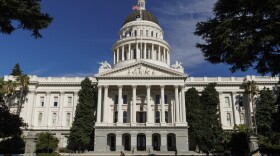The drive to commercialize space travel took a slight stumble Monday in the New Mexico desert, where the first launch from Spaceport America failed to reach space. The unmanned 20-foot rocket, built by Connecticut-based UP Aerospace Inc., took off safely before flying erratically.
The rocket eventually reached an altitude of 40,000 feet before returning to the ground.
But the malfunction is not likely to stop the push to bring privately owned businesses into the space travel and freight business.
The launch took place at a temporary facility that the state of New Mexico plans to eventually replace with a $225 million spaceport.
The SpaceLoft XL rocket was loaded with 50 experiments and other small payload items, which it was expected to take about 70 miles above the Earth. The suborbital 13-minute flight was meant to end with a landing on the government's White Sands Missile Range, 33 miles northeast of the launch site.
UP Aerospace plans a number of launches this year, with cargo space aboard the rockets costing the public anywhere from hundreds of dollars to tens of thousands of dollars.
Richard Branson, founder of the Virgin Group, announced plans last year to base his space-tourism company, Virgin Galactic, in New Mexico and to launch flights from the spaceport by the end of the decade.
Copyright 2022 NPR. To see more, visit https://www.npr.org. 9(MDAzMjM2NDYzMDEyMzc1Njk5NjAxNzY3OQ001))







